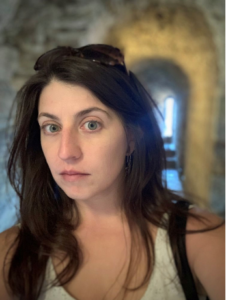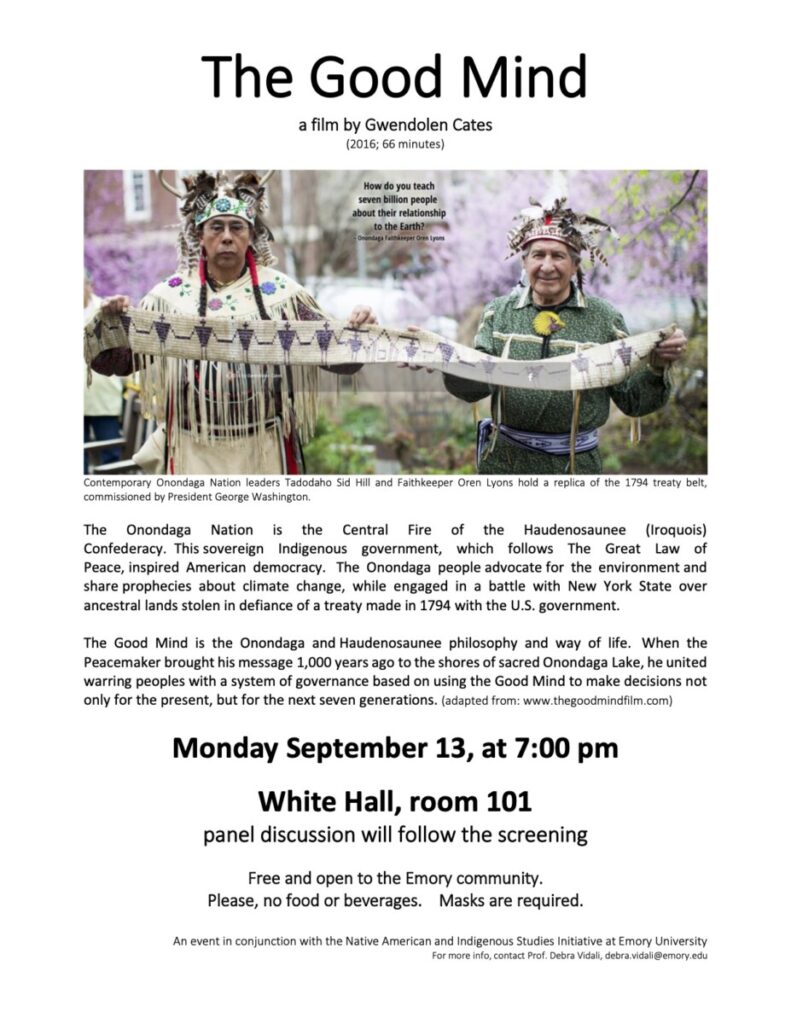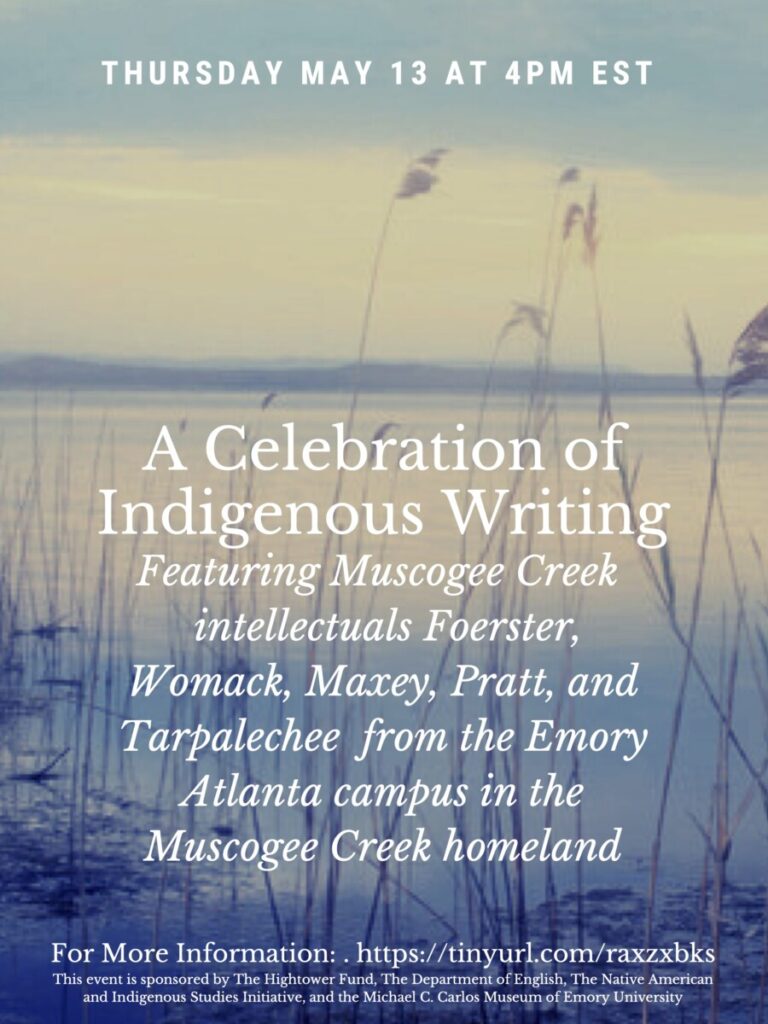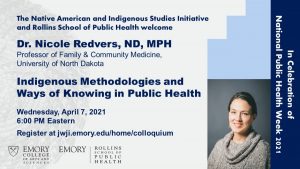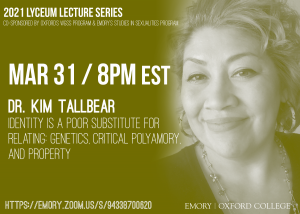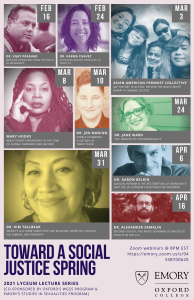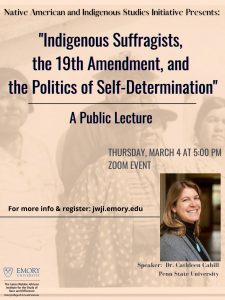Migrant Cherokee Mothers; Dust Bowl Allotment Legacies
Presenter: Gina Caison
September 16, 2021, 4-5:30 PM EST
Location: Online. Email event organizer Dr. Mandy Suhr-Sytsma (msuhrsy [at] emory [dot] edu) to request the meeting link.
Sponsored by: Emory University English Department and the Native American and Indigenous Studies Initiative at Emory University
Online, free, and open to university faculty, staff, and students as well as community members.
In this talk, Gina Caison examines how cultural and literary histories of the massive erosion event known as the Dust Bowl have not always engaged the Indigenous contours of the story or its relationship to representations of Indigenous women. At the center of this examination will be a consideration of the women characters in Cherokee playwright Lynn Riggs’ early 1940s work, The Cream in the Well. Through an analysis of Riggs’ play constellated with the surrounding legacy of 1930s Dust Bowl imagery, Caison queries what the events collectively known as “the Dust Bowl” (regardless of their geographic proximity to the actual epicenter of the phenomenon) have to tell us about a larger settler colonial anxiety of land theft and land loss.
Bio: Gina Caison is an associate professor of English at Georgia State University where she teaches courses in southern literatures, Native American literatures, and documentary practices. Her first book Red States: Indigeneity, Settler Colonialism, and Southern Studies (UGA Press, 2018) won the 2019 C. Hugh Holman Award for the best book in southern literary studies. Along with Lisa Hinrichsen and Stephanie Rountree, she is co-editor of Small-Screen Souths: Region, Identity, and the Cultural Politics of Television (LSU Press, 2017) and Remediating Region: New Media and the U.S. South (forthcoming from LSU Press, 2021). She is currently President of the Society for the Study of Southern Literature, and she has just returned to Atlanta following a year as a fellow at the Institute for Advanced Study in Budapest, where she composed the manuscript for her current book project, Erosion: American Literature & the Anxiety of Disappearance.
